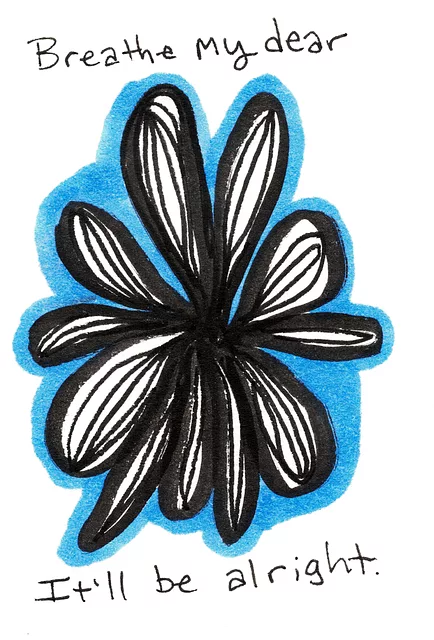Cultural sensitivity is key in effective mental healthcare, especially at Kaiser's Wheat Ridge facility serving diverse patients. By employing active listening, empathy, and training through organizations like Stress Management Workshops, they build trust and open dialogue. The program's success lies in its holistic approach, offering customized conflict resolution and resilience-building activities. However, challenges include a lack of diverse staff and biased systems, requiring investment in training, mindfulness workshops, and an inclusive environment to improve patient outcomes and culturally responsive care.
Cultural sensitivity is a cornerstone of modern mental healthcare, ensuring effective treatment across diverse populations. This article explores cultural competence within the context of inpatient mental health services, using the Kaiser Inpatient Mental Health Program at Wheat Ridge as a case study. We delve into challenges faced and barriers to culturally sensitive practice, offering strategies to enhance diversity and inclusivity in healthcare settings. Discover how organizations like Kaiser strive to provide equitable care, addressing unique cultural needs.
- Understanding Cultural Competence in Mental Health Care
- The Kaiser Inpatient Mental Health Program at Wheat Ridge: A Case Study
- Challenges and Barriers to Culturally Sensitive Practice
- Strategies for Enhancing Cultural Sensitivity in Healthcare Settings
Understanding Cultural Competence in Mental Health Care

In the realm of mental healthcare, cultural sensitivity is no longer a nice-to-have but an essential component for delivering effective treatment. Understanding cultural competence means recognizing and appreciating the diverse beliefs, values, and behaviors that shape individuals’ experiences with mental health issues. This is particularly relevant when considering facilities like Kaiser’s inpatient mental health services in Wheat Ridge, where patients from various ethnic backgrounds seek support. By embracing cultural sensitivity, healthcare providers can create a safe and welcoming environment, fostering trust and encouraging open communication.
Empathy building strategies play a pivotal role in this process. These involve actively listening to patients, validating their experiences, and demonstrating an understanding of their cultural perspectives. Additionally, organizations like the Stress Management Workshops can offer valuable resources to help mental health professionals develop skills for navigating cultural differences. Moreover, preventing burnout among healthcare workers is crucial, as it ensures they remain attuned to their own cultural biases and can better support patients from diverse backgrounds, ultimately enhancing care outcomes.
The Kaiser Inpatient Mental Health Program at Wheat Ridge: A Case Study

The Kaiser Inpatient Mental Health Program at Wheat Ridge serves as a compelling case study for integrating cultural sensitivity into mental healthcare practices. This program is designed to cater to a diverse range of patients, reflecting the varied cultural backgrounds and unique needs prevalent in today’s society. By recognizing the impact of culture on mental health experiences, Kaiser’s approach prioritizes creating a safe and inclusive environment.
The facility employs specialized staff who utilize conflict resolution techniques and resilience-building activities tailored to different cultural contexts. These methods foster open communication, encourage understanding, and promote emotional well-being for all patients. Through this holistic approach, the program aims to provide effective treatment while respecting and celebrating individual cultural identities, ultimately demonstrating a commitment to delivering culturally sensitive mental healthcare.
Challenges and Barriers to Culturally Sensitive Practice

Cultural sensitivity in mental healthcare is a complex and evolving field, particularly within organizations like Kaiser’s inpatient mental health facility in Wheat Ridge. While the benefits of culturally responsive care are well-documented, several challenges and barriers hinder its widespread implementation. One significant obstacle is the lack of diversity among healthcare providers. Many mental health professionals may not have the necessary cultural competency training or firsthand experience interacting with diverse patient populations, leading to misunderstandings and miscommunications.
Moreover, institutional structures and systems can create additional barriers. Biases in diagnostic tools, limited access to culturally specific treatments, and a shortage of resources for translation services are just a few examples. Additionally, the presence of systemic issues like the Mental Illness Stigma Reduction Efforts has been shown to impact patient outcomes. To overcome these challenges, Kaiser and similar institutions must prioritize ongoing professional development for staff, integrate Mindfulness Meditation and Stress Management Workshops Organization into routine care, and actively foster an environment that values and embraces cultural diversity.
Strategies for Enhancing Cultural Sensitivity in Healthcare Settings

In healthcare settings, especially at Kaiser’s inpatient mental health facility in Wheat Ridge, enhancing cultural sensitivity involves a multifaceted approach. One effective strategy is to integrate Mental Health Education Programs Design that cater to diverse cultural backgrounds. These programs can educate both staff and patients about different cultural perspectives on mental health, fostering an environment where all feel understood and respected. Encouraging open dialogues and promoting Emotional Well-being Promotion Techniques tailored to individual cultures can significantly improve patient outcomes.
Furthermore, focusing on Inner Strength Development through culturally sensitive practices enables healthcare providers to address the unique needs of their patients. This might include incorporating traditional healing methods or adapting therapeutic approaches to align with cultural beliefs. By doing so, staff members at Kaiser in Wheat Ridge can ensure that every patient receives care that not only treats their mental health conditions but also honors and respects their cultural identities.
Cultural sensitivity is an essential aspect of providing effective mental healthcare, as demonstrated by the case study of the Kaiser Inpatient Mental Health Program at Wheat Ridge. By understanding cultural competence and implementing strategies to enhance it, healthcare settings like Kaiser can overcome challenges and barriers, ensuring that all patients receive personalized care tailored to their unique backgrounds and needs. This approach not only improves patient outcomes but also fosters a more inclusive and accessible mental healthcare environment. As the demand for culturally sensitive services grows, integrating these practices becomes crucial in meeting the diverse needs of a global population.






